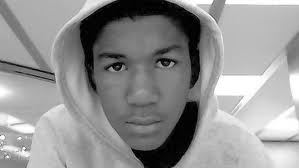 The recent execution of the questionably guilty Troy Davis in Georgia has sparked a lot of discussion around whether or not the death penalty is “right”. The evidence certainly supports the case that capital punishment is not a cost effective solution, nor is it an effective deterrent. It is applied with a decided racial bias, and its inherent irreversibility is problematic given that at least some innocent people are irrefutably being convicted.
The recent execution of the questionably guilty Troy Davis in Georgia has sparked a lot of discussion around whether or not the death penalty is “right”. The evidence certainly supports the case that capital punishment is not a cost effective solution, nor is it an effective deterrent. It is applied with a decided racial bias, and its inherent irreversibility is problematic given that at least some innocent people are irrefutably being convicted.
Yet the key point would seem to be that this is not a data-driven decision for most people. It is a moral one. Or at least that’s how most people seem to rationalize it.
I strongly suspect that the lion’s share of people are not as morally certain about capital punishment as they claim, or at least not as unconditional in their opposition or favor of it.
To be clear, I’m not talking about personal life and death situations here. A bad guy is holding a knife at your kid’s throat and you’ve got a clean temple shot, do you take it? For most of us, absolutely. But that’s a situation of imminent and immediate danger. And I will contend the morality of that situation is quite different from situations in which a group of people not in present danger make a choice to end someone else’s life. The question is not whether or not you would ever kill. Rather, at its root, the question is whether or not society has the right, as a group, to take another life. (The government being, ostensibly, just a manifestation of society or of a group of people.)
Many people do claim they are morally and unequivocally opposed to capital punishment. The assertion is that government, and by extension, society, doesn’t have the right to kill. Yet, in a very real sense, we the people make all kinds of life and death decisions.
As a country, we wage wars. When that happens we know that people on both sides will die. We may not individually choose who dies, but as a group we are sending other human beings to their death.
The National Organ Transplant group makes more specific life and death decisions every day. People specifically choose winners and losers, and the losers die.
These may seem like off-topic references, but in these and many more cases, society chooses to sacrifice some people for the greater good. Clearly, we’re already on the slippery slope, but arguably this doesn’t specifically address death as punishment. Perhaps we can draw a line there.
But even death as punishment gets a little fuzzy. Consider that today the U.S. military executed Anwar al-Awlaki. The guy was a very influential al-Qaida operative, but he was also a U.S. citizen. Remember back in May when Seal Team 6 famously dispatched Osama bin Laden? How were these not examples of capital punishment? Either of those guys could have been captured, returned to the States for trial, and held for life in a maximum security facility. Yet very few people advocated for that.
The practical matter remains that the objective of removing dangerous people is the increased safety and security of our citizens. Sending a local serial killer to prison for life accomplishes that. Capturing bin Laden does not. His followers would have created additional threats for Americans were he only in jail. We are safer if he’s dead. Many people who are adamant the death penalty is immoral would acknowledge that. Therefore, it seems clear that, with the exception of true pacifists, moral opposition to capital punishment has its limits.
At the other end of the spectrum, people finding the death penalty morally sound tend to find boundaries somewhat more easily. It’s a pretty rare person that advocates capital punishment for jay-walking or shoplifting. Even the most ardent Evangelical stops short of arguing for stoning people who picks up sticks on Saturday as commanded by the Lord in Numbers 15:32-36. There are arguments to had with regard to how heinous the crime should be to warrant the death penalty, but basically everyone agrees there are limits to its application.
My personal position is that I do not consider myself morally opposed to capital punishment. I do find there are rare but real situations in which it is the sentence that achieves a demonstrably greater good for society. And I do firmly believe that society gets to make decisions in its collective best interest, and that such decisions may extend to the well-being or even the life of individuals. However, in large part, I do find the death penalty is expensive, ineffective, and impractical. It is very nearly almost never the best solution.
That said, I also believe it’s morally reprehensible to support the death penalty out of a sense of vengeance. And whether they admit it to themselves or not, many, if not most, advocates will find vengeance at the core of their motivation. They may cite religious morality in terms of Old Testament support for retributive punishment, or they may talk about justice and how the person deserved to die for what they did. Regardless, it all comes back to some form of Godly or personal vengeance. And I can’t abide that.
While it’s important to understand your position, it’s perhaps more important to have explored the boundaries of that position as well as the underlying motivations that led you there. So where are you? And why?


